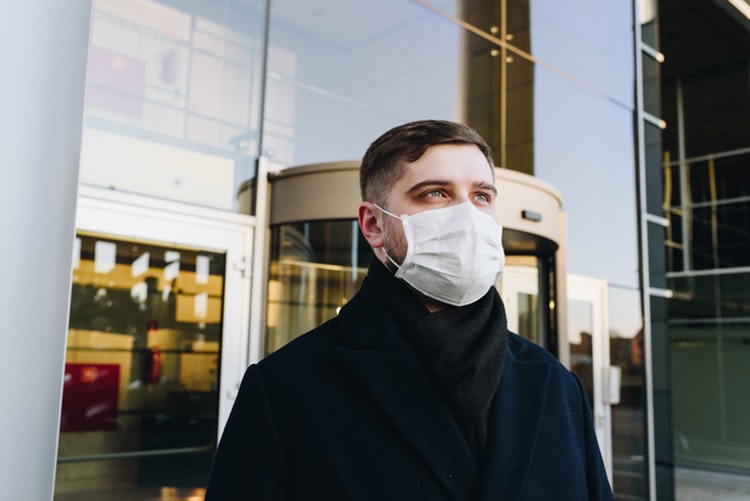Coronavirus – What You Need to Know

There’s every chance that you’re already well aware of the outbreak of coronavirus which is impacting on a global scale at the moment. UK has been affected at the same time as the rest of Europe, so if you’re planning on visiting in the next few months it’s wise to make sure that you travel armed with the latest information.
COVID-19 is an illness caused by the coronavirus, and it impacts on the lungs and airways of people who catch it. What follows are details of the risks posed to travellers, along with information on symptoms, precautions, the steps to take if affected, frequently asked questions and advice to help keep you safe.
What is the level of coronavirus risk in the UK?
The official rating of the risk in UK, as set by the Chief Medical Officer, has been raised from low to moderate. At the same time, health professionals in the UK are busy tracing and getting in touch with anyone who has been in close contact with an individual known to have the coronavirus.
Coronavirus – the symptoms
In the majority of cases the symptoms of Coronavirus disease (COVID-19) are relatively mild, and include a fever, a cough, sore throat and a runny nose. In more severe cases a patient may experience difficulty breathing.
It is perfectly possible to have any or all of these symptoms without having COVID-19, since they also feature in much more frequent ailments such as the flu and common colds.
Protective measures to help ward off coronavirus
The simplest advice is to wash your hands regularly and well, using hot water and soap. If this is not possible, clean your hands using an alcohol-based hand rub. Both of these measures will kill any viruses on your hands.
Another precaution involves staying at least 1 metre (3 feet) away from anyone who is sneezing or coughing. This is because the act of sneezing or coughing expels liquid droplets from the nose or mouth, and these droplets might contain the virus. If you are closer than 1 metre then it’s possible you could breathe in these droplets, and if the person coughing has COVID-19 you will be breathing the virus in.
Avoid touching your face, and in particular your nose, mouth and eyes. This is because your hands come into contact with multiple surfaces during the average day, any one of which could contain the virus. By transferring the virus from the surface to your hands, and then to your eyes, nose or mouth, you run a greater risk of it entering your body and making you unwell.
Practice effective respiratory hygiene and persuade others around you to do the same. In practice this involves covering your mouth and nose with a tissue when you cough or sneeze or, if no tissue is available, with the crook of your elbow. Any tissue used in this manner should be disposed of immediately, as it may contains the virus and spread it. Good practice like this can protect the people around you from both COVID-19 and other cold and flu viruses.
If you feel unwell then stay at home. If your symptoms include a cough, fever or breathing difficulties then seek medical attention, but do not visit a GP, hospital or pharmacy as this risks spreading the virus. Instead, make use of the NHS 111 online coronavirus service to seek advice on the next steps to take.
Here at London Backpackers, we are taking all steps necessary to help to contain the virus. This includes following all official guidelines on hand and respiratory hygiene, as well as maintaining our usual very high standards of cleanliness and safe food practices. We constantly follow and respond to the advice circulated by bodies such as the World Health Authority and also local country Health Authorities. These bodies, together with the NHS, are an excellent source of information for anyone concerned about the coronavirus. The following information is based on responses given by the NHS to some of the most frequently asked questions on COVID-19.
Frequently asked questions on Coronavirus (COVID-19)
Q: What is COVID-19?
A: It is a strain of virus which has only been spreading in people since December 2019.
Q: How does COVID-19 spread and what are the symptoms?
A: The main way in which the virus spreads is through respiratory droplets, like those emitted when people sneeze or cough. In order to become infected like this, you would normally have to be within three feet of someone who is contagious. The main symptoms are a fever, a cough, a sore throat and a runny nose. In more severe cases the symptoms may also include breathing difficulties.
Q: How long does it take for symptoms of the COVID-19 to appear?
A: At the moment the best information is that the symptoms could appear as quickly as in two days, or after a longer period such as 14 days.
Q: How is COVID-19 treated?
A: At the moment no medication has been approved for COVID-19. Anyone infected should receive care designed to control the symptoms, such as rest, fluid intake and fever control.
Q: Should I be tested for COVID-19?
A: If you feel ill with a fever, have a cough or are experiencing difficulty breathing, and have been in close contact with someone known to have COVID-19, or have yourself recently been in a geographic location which has an ongoing COVID-19 issue, then get in touch with your healthcare professional.

